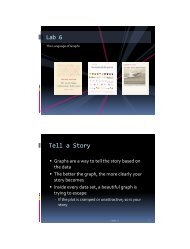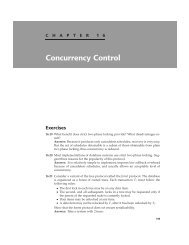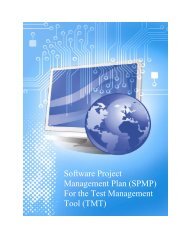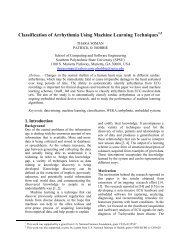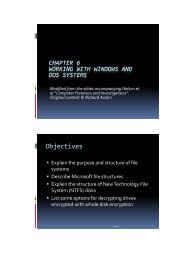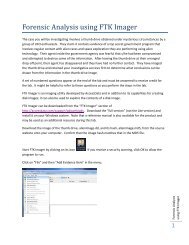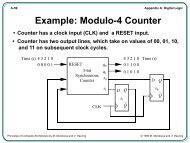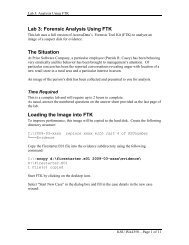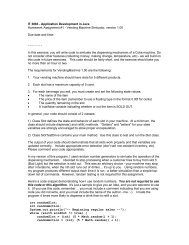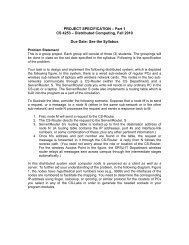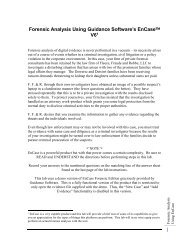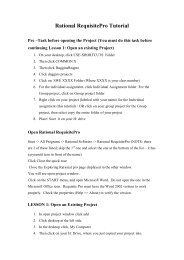Create successful ePaper yourself
Turn your PDF publications into a flip-book with our unique Google optimized e-Paper software.
DRAFT, February 18, 2003, Page 113<br />
Remember to add a path separator when prepending or appending to a path, like "PATH+=C:\newpath;"<br />
on Windows or "PATH+=/usr/local/newpath:" on UNIX/Linux, or<br />
"PATH+=/usr/local/newpath%PATH_SEP" for either.<br />
All variables may be used, so you'll need to escape "%" with "%%". All whitespace is significant, so don't<br />
leave space before the end-of-line or within the command unless you mean it to be there. For example,<br />
"VAR = VALUE" will set "VAR " (VAR followed by a space) to " VALUE" (VALUE preceded by a space).<br />
You can have a plus sign at the beginning of a value by using the %PLUS variable. For example<br />
"VAR=%PLUSval" will set "VAR" to "+val". In most environments, equals signs can not appear in<br />
environment variable names, but for completeness, you can use %EQ to include an equals sign (this will<br />
most likely produce unexpected results).<br />
By default, settings apply to all commands. You can change the commands they apply to using "-<br />
Command" and "+Command" or "Command". For example "-Run" will make the following settings not<br />
apply to the run command, and "+Run" or just "Run" will do the opposite. These commands can be<br />
grouped on a line, separated by whitespace. Use the exact labels in the dialog for command names, only<br />
for Run Applet, use "Run_Applet" (replace space with an underscore).<br />
For example: add C:\mypath to the path but not for run or debug and set DEBUG_TEST to 1 for debug<br />
only.<br />
-Run –Debug<br />
PATH+=C:\mypath;<br />
-Compile -C/L -Check +Debug<br />
DEBUG_TEST=1<br />
23.3.2 Parse Page (C and C++ only)<br />
CSD parsing options for C and C++. These apply only to CSD generation, not to compiling.<br />
Include Path - search path for include files. The directory containing the file is always searched (last).<br />
Include Files - all, none, or only local include files may be parsed. Local includes are defined as those<br />
include by #include "filename" rather than #include . Include file parsing is necessary for CSD<br />
generation if the include files contain unstructured macros (macros that when used, do not look like legal<br />
C or C++ code) or partial code structures. Parsing include files can make CSD generation slow, so it<br />
should be turned off if unnecessary.<br />
Expand Macros - if true, macros are expanded during CSD generation. This may be necessary for<br />
unstructured macros, and for others, some CSD structure for the substitution result may be shown if this<br />
is on.<br />
Use Alternate Tokens - the C++ language allows alternate tokens such as "




